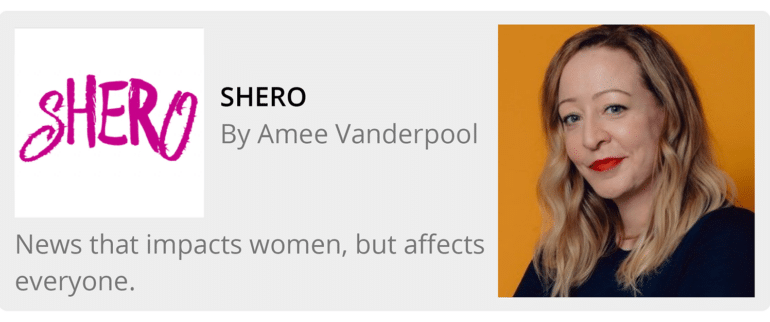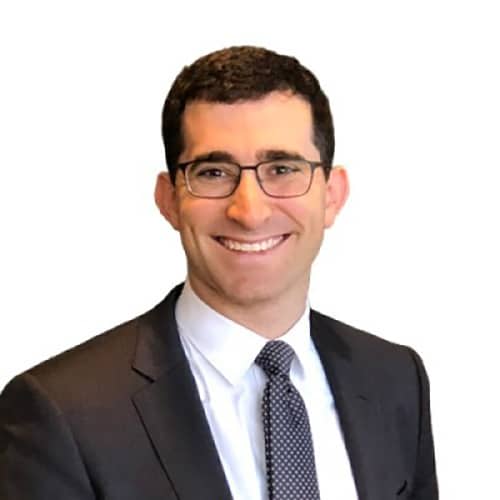The Planetary Lawyer Project’s Matthew Karmel talks with Alex Su, Amee Vanderpool, Chris Harvey, Jonah Perlin and Albert Tawil about building a successful attorney newsletter in your niche.

The business community knows the value and staying power of newsletters: Recent studies show the return on investment for email marketing is $36 for every $1 spent. With the rise of platforms like Substack, newsletters are becoming more niche-focused and personal, and lawyers are taking advantage of these trends.
Recently, I interviewed the authors of several high-profile attorney newsletters to learn what motivated them to start their newsletters and what the impact has been so far. From Alex Su’s exploration of AI and alternative careers to Amee Vanderpool’s focus on human-centric political and legal issues to my commitment to showing how every lawyer can work on climate, here’s how these six lawyers are using newsletters to further their professional and personal goals.
Table of contents
Off the Record by Alex Su
Alex Su left the practice of law in 2016 to join a legal tech startup as an entry-level salesperson. He’s risen through the ranks and is now Chief Revenue Officer at Latitude, a flexible legal talent company that provides high-caliber contract attorneys to law firms and legal departments. Alex is also a social media influencer and the author of “Off the Record,” a newsletter about his unique perspective on the legal ecosystem, including legal technology and AI, and observations about “unicorn jobs.”

What should lawyers expect from your newsletter?
I share stories from my career journey transitioning out of the practice of law. Topics I cover include alternative careers for lawyers, sales & business development, trends in the legal ecosystem, and AI for legal.
What type of lawyers would benefit from your newsletter?
Anyone who wants to get a sense of emerging trends in legal, technology, and AI or anyone who feels dissatisfied with their lawyer job and wants to find a more meaningful career.
How long have you been writing, and what motivated you to start writing a newsletter?
I’ve been writing my whole life and this newsletter for a little over two years. During the pandemic, I became known for my funny video skits and memes, and I wanted to share more substantive content with my audience. I also wanted a place to document everything I saw and heard and share my expertise around sales and business development.
How does your newsletter align with your professional goals and values?
My newsletter gives me a chance to increase my professional visibility by sharing my analysis of the legal ecosystem and my knowledge of sales and marketing. It’s also another way to maintain contact with my audience, who might be less interested in the jokes and memes and more interested in my more substantive thoughts.
What is a specific example of how your newsletter positively impacted your practice or career?
I’ve been able to reach high-level contacts and have great conversations with them because I don’t need to earn my credibility. They’ve already read my writing, so they’re familiar with my point of view, so we can also have a deeper discussion rather than a surface-level conversation. My writing has led to advisor and consulting opportunities I never thought possible.
What advice do you have for other lawyers thinking of starting a newsletter?
Write great content. The biggest growth driver is having people forward your emails or share your content with their friends, and high-quality content is very shareable. There certainly are hacks that can help propel growth in the short term, but in the long run, the question facing readers is this: Is the next email I get from this newsletter worth reading? If the answer is yes, good things will inevitably happen.
SHERO by Amee Vanderpool
Amee Vanderpool is an attorney, published author, newspaper and magazine contributor, and BBC Radio analyst. She is the author of SHERO, a newsletter about political and legal issues facing women but affecting everyone.

What should lawyers expect from your newsletter?
My newsletter connects the legal and political dots for issues facing women but affecting everyone. This means that every lawyer will get more exposure to some legal issues that may not always be at the forefront of legal analysis, but my articles also include the political aspects with the legal ramifications for everyday people.
What type of lawyers would benefit from your newsletter?
Any lawyer could glean a fresh perspective on some issues that they may not encounter in academia. I also endeavor to publish editorial content that may give some insight into concepts and issues that may be new and interesting.
How long have you been writing, and what motivated you to start writing a newsletter?
I have always loved to write. I actually won an essay writing contest in the 6th Grade, and ever since, I have pursued it in some form. As an attorney, my academic writing evolved, but I also found that my style and voice became clearer, especially when discussing the political matters I was passionate about. I never imagined that I could find a career in which I was able to primarily write and control my own content, so my newsletter is a dream come true. Sometimes, you can’t actually know what your specific, ideal dream job is until you create it for yourself.
How does your newsletter align with your professional goals and values?
I have always maintained a high standard for my work, and my work ethic has always been intense, so this has translated well with regard to my writing, marketing and publishing work on SHERO. I can pursue topics and issues that I am passionate about, which is not often the case when you are practicing. I love the freedom this affords me, and I think that this kind of writing, which piggybacks off of my legal training and career, helps to make my content interesting and informative while I can still utilize my own writing style and voice to communicate about the social and real-world aspects of an issue.
What is a specific example of how your newsletter positively impacted your practice or career?
My favorite aspect of writing SHERO has always been the feedback from subscribers who tell me they feel seen or that something I have published was important to them. Sometimes, this emphasis on humanity, communication and interaction can be missing in the client experience. What writing SHERO has taught me, above all else, is that if I am feeling or experiencing something in my professional or personal life, MANY other people are going through the same experience. As lawyers, we are forced to advocate for our clients, regardless of choice or personal preference. By sharing my experiences and understanding how many people are like me, I feel I am advocating in a way I never could in the traditional law.
Advice for lawyers thinking of starting a newsletter?
DO IT. Attorneys are very talented people with the ability to do many things. However, we are trained in law school to stay in one lane and fear moving out of that chosen path. Don’t be afraid to put yourself into the world with your own voice, because it is needed, and you will be surprised at how appreciated it is.
I like to think of this TS Elliot quote when I think of undertaking a big challenge that really means something to me: “If you’re not in over your head, how will you know how tall you are?”
The Planetary Lawyer Project by Matthew Karmel
Matthew Karmel is the Chair of the Environmental and Sustainability Law Practice at Offit Kurman, a full-service Am Law 200 law firm. His practice combines traditional environmental representation across transactions, litigation and regulatory compliance with cutting-edge sustainability initiatives, renewable energy and cleantech. He is the author of “The Planetary Lawyer Project,” a newsletter for any lawyer who wants to do more climate-friendly work.

What should lawyers expect from your newsletter?
Every other week, my newsletter shares insights on how to build a climate-friendly legal career, stories from leading lawyers working on climate, and job opportunities that allow lawyers to work on climate.
What type of lawyers would benefit from your newsletter?
My newsletter will benefit any lawyer looking to do more climate-friendly work. No matter what type of law you practice or where you are in your career, you can support climate-friendly causes and companies in many different ways.
How long have you been writing, and what motivated you to start writing a newsletter?
I started the newsletter in April 2022. I had been practicing traditional environmental law for some time and was looking at the future of my career. I was annoyed that there were so few resources for lawyers who wanted to build climate-friendly careers or just do more good things for the planet, so I started to talk and write about my own experiences building a climate-friendly career.
How does your newsletter align with your professional goals and values?
My newsletter allows me to share my perspective on what it means to be a lawyer working on climate issues. I want to grow my own practice and help the next generation of lawyers (and the current one) build careers that meaningfully engage with the planet, whatever that means to the individual lawyer. The newsletter helps me do all of that, and I hear from lawyers all the time about how it inspires them or provides key resources. Those are my goals.
What is a specific example of how your newsletter positively impacted your practice or career?
We began hosting events for the readers of my newsletter in 2023. We started with a webinar called “How Can Any Lawyer Work on Climate?” and had more than 300 lawyers register for the event. We then had a two-day virtual conference to teach lawyers how to do more climate-related pro bono work, and we had more than 700 lawyers register for that one! From the newsletter and these events, my already healthy network has grown and I’ve developed relationships with high-level in-house lawyers.
Advice for lawyers thinking of starting a newsletter?
Writing a newsletter is one of the most powerful and sustainable ways to market your services as a lawyer. You get to speak directly to your colleagues and potential clients and show them who you are. That is invaluable. But you have to speak with your unique voice and perspective. Lean into newsletters as creative, individual pursuits and you will find many rewards.
Law of VC by Chris Harvey
Chris Harvey has been a venture capital lawyer for over 14 years. He represents fund managers and investors in structuring fund formations and transaction documents such as LPAs, LLC/operating agreements, Series Seed, Series A, mergers and acquisitions, and all matters related to the venture capital lifecycle. He is the author of “Law of VC,” a newsletter dedicated to law and legal technology as it relates to emerging funds.

What should lawyers expect from your newsletter?
High-level summaries of venture capital fund law with detailed footnotes and research sites if lawyers want to learn more.
What type of lawyers would benefit from your newsletter?
Lawyers who want a unique perspective on venture capital fund law for information they can’t find in published books or law treatises.
How long have you been writing, and what motivated you to start writing a newsletter?
I started on Quora.com in 2015 but then moved to Substack in the early throes of the pandemic in 2020. The inspiration for the newsletter came while I was sitting at home in LA, wondering what I would do with all that extra commute time saved by not going into my office. I took a two-month cohort-based online writing class called Write of Passage by David Perell. I then spent the next few months building out a thesis to write about.
How does your newsletter align with your professional goals and values?
Writing is a high form of leverage, and being able to distill complex or difficult concepts into simple checklists and frameworks sharpens my thinking on the topics.
What is a specific example of how your newsletter positively impacted your practice or career?
First, it opened the doors to writing guest blogs on other websites, which led to me having the opportunity to invest in sought-after venture startups and funds. Second, it raised my ability to attract clients who would have never found me or retained me as their lawyer.
Advice for lawyers thinking of starting a newsletter?
Learn what your clients value and provide that value consistently, repeatedly and without asking for anything in return. Patience and consistent value creation are the keys to a return on investment. You can generally do this in one of two ways: Create interesting original content or amplify existing content worth reading. My blog tends to draft more original content, but there are very successful authors out there who do the latter — my favorite is David Bushby’s InCounsel Weekly.
Also, never be afraid to self-promote your content on social media or through your network channels; just make sure it’s worth your prospective client’s time to read it.
How I Lawyer by Jonah Perlin
Jonah Perlin is an Associate Professor of Law, Legal Practice, at the Georgetown University Law Center. Jonah teaches and writes about legal communication, legal ethics and the technology of law. Jonah hosts “How I Lawyer,” a top-rated podcast for junior lawyers, and a newsletter of the same name.

What should lawyers expect from your newsletter?
In my experience, newsletters are a really powerful way to communicate directly with your intended audience without requiring an algorithm or publisher. They are also different from blogs in the sense that they arrive via email. That said, the expectations should be modest — it’s about the content you are communicating.
What type of lawyers would benefit from your newsletter?
For now, my newsletter is just a way to share my podcast (How I Lawyer). My primary audience is junior lawyers looking to learn what lawyers do, why they do it, and how they do it well. Even if you don’t listen to the episode, the newsletter shares the key discussion topics. I think any lawyer would benefit from learning from the experts of our profession!
How long have you been writing, and what motivated you to start writing a newsletter?
I started my newsletter three years ago as a way to share my podcast. Maybe it will turn into something freestanding someday, but not yet.
How does your newsletter align with your professional goals and values?
As a full-time professor of legal practice, my professional north star is training the next generation of lawyers. My newsletter allows me to use the stories of those currently in the practice to share best practices and the different types of career paths lawyers can have.
What is a specific example of how your newsletter positively impacted your practice or career?
The newsletter (and podcast) have had a huge impact on my ability to share my message and the stories of legal luminaries with the next generation of lawyers. It has also connected me with an incredible community of practitioners who are helping me find other ways to support my efforts. For example, I interviewed Brian Potts and now serve on the Legal Mentor Network Board he co-founded. It also impacts my teaching and scholarship.
Advice for lawyers thinking of starting a newsletter?
Start. Content creation is the classic chicken-and-egg problem. You can’t get an audience for your content unless you create it, but you also don’t want to create it without an audience. So, just get started.
Know your audience. The key to creating good content is knowing for whom you are creating it. Others can benefit, but create for your avatar audience and it will be far more likely to actually “work.”
Lateral Hub and Summer Associate Hub by Albert Tawil
Albert Tawil is the Founder & CEO of Lateral Hub, the popular job board for laterals to find jobs at top firms, and Summer Associate Hub, a free resource and content hub for law students to navigate the BigLaw recruiting process. Lateral Hub offers a weekly newsletter for attorneys, with career advice, featured jobs, and humor. Summer Associate Hub offers a newsletter for 1L students to help prepare for the recruiting process, including daily content during the spring/summer recruiting season. Albert is a former IP/Technology Transactions associate at Cleary Gottlieb and Fenwick & West in New York.

What should lawyers expect from your newsletter?
In Lateral Hub, I share a blog post, video, or other easy, helpful, and fun content each week. Usually, the blog posts focus on advice for a lawyer’s job search or how to succeed as a law firm attorney. We also feature jobs from our job board platform. And, of course, we always include a featured meme or reel video to inject some humor, including videos that I make poking fun at life as a BigLaw associate.
In our Summer Associate Hub newsletter, we try to keep it short, with one “gold nugget” of content in each email, especially during the recruiting season (March-July), when we send emails every weekday. This can be a blog post, short video, podcast episode or something else. We also remind subscribers about all the helpful and interesting content we have on our site and how to find it.
What type of lawyers would benefit from your newsletter?
For the Lateral Hub, any lawyer actively looking for a new job at a law firm. But pretty much any law firm associate thinking about making a move at some point (so, everyone) or considering how to succeed and grow as an attorney generally.
For the Summer Associate Hub, any 1L student interested in securing a 2L Summer Associate position at BigLaw firm and how to position themselves to do that as effectively as possible.
How long have you been writing, and what motivated you to start writing a newsletter?
I’ve always enjoyed writing — persuasive writing, creative writing, comedy writing. When I decided to launch Lateral Hub in early 2022, it became clear that this business would not just be a job board. Providing high-quality content and advice goes a long way, whether or not the reader is actively looking for a job. So, I made a commitment to having a consistent newsletter as a key part of our business.
How does your newsletter align with your professional goals and values?
In everything I do, I bring my full self. The best feedback I got as a BigLaw associate was that I was real — I didn’t try to be someone else or hide my personality. Being genuine has helped me build relationships both as an associate and especially now in the legal recruiting industry. So, each newsletter starts with a short note from me about why we are including this content and some other thoughts. It’s a fun way for readers to understand that we are real people behind the platform and engage with us.
What is a specific example of how your newsletter positively impacted your practice or career?
It’s been incredible to see the power of newsletters. By sending high-quality and helpful information to people’s inboxes, it allows them to share it, respond, and see it. We’ve had law firm career advisors forward our emails to all of their clients about job search programs we held. We’ve had attorneys forward our newsletter to their recruiting teams, asking if they have considered listing jobs on our site. We’ve had coaches repost our content on LinkedIn for their followers to see, encouraging them to subscribe. I like to call it “word-of-mouse.”
Advice for lawyers thinking of starting a newsletter?
A colleague recently shared a wonderful book about newsletters (Do Open), and as they say in that book, interesting things happen when you do interesting things. My advice is: Don’t overthink it. If there is a topic you are passionate about, and you feel you have a unique perspective or something to say, just do it. Start writing on LinkedIn and encourage people to sign up for your newsletter.
The only way to grow a newsletter is to continue writing high-quality content — there is no hack or shortcut. With consistency, you will see the results, and it can be incredible.
Good Ideas for Successful Legal Practices
Every day, Attorney at Work publishes practice tips covering the spectrum of law firm life — advice for the perpetually slammed and stressed, expert tips for landing new clients, using the right tech, improving your financial health, and serving your clients. Don’t miss a thing: Sign up for our daily tips and weekly recap newsletter HERE (it’s free).
















